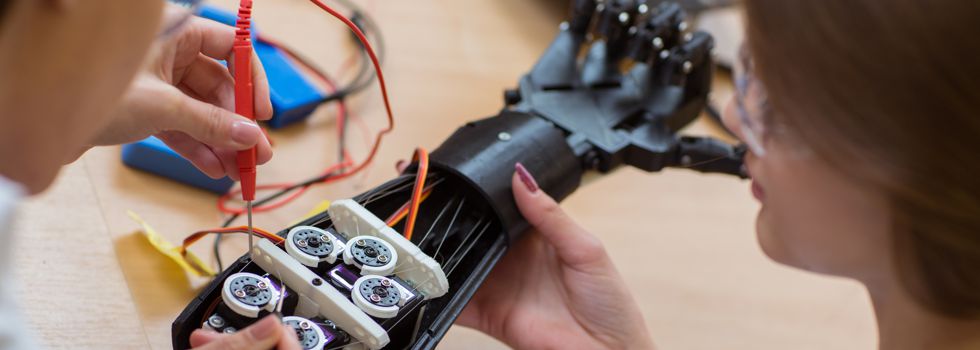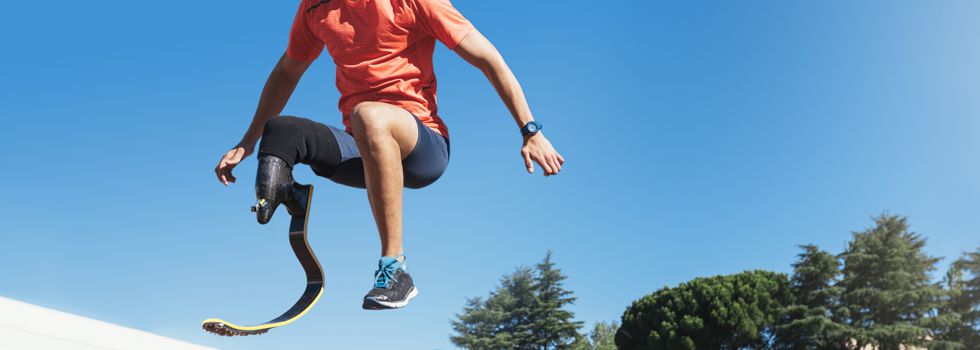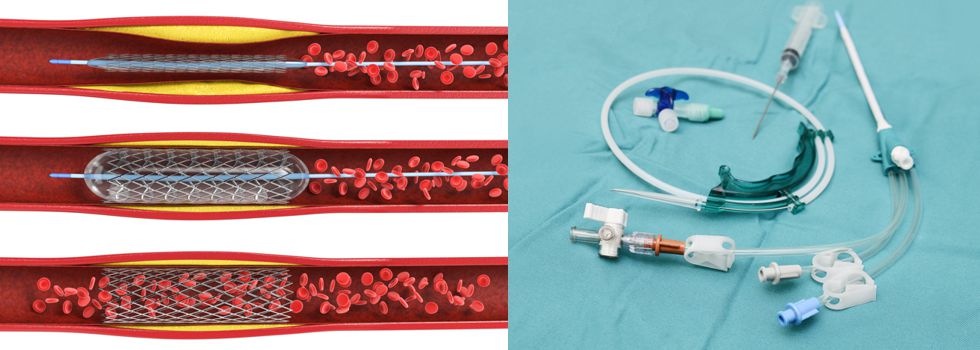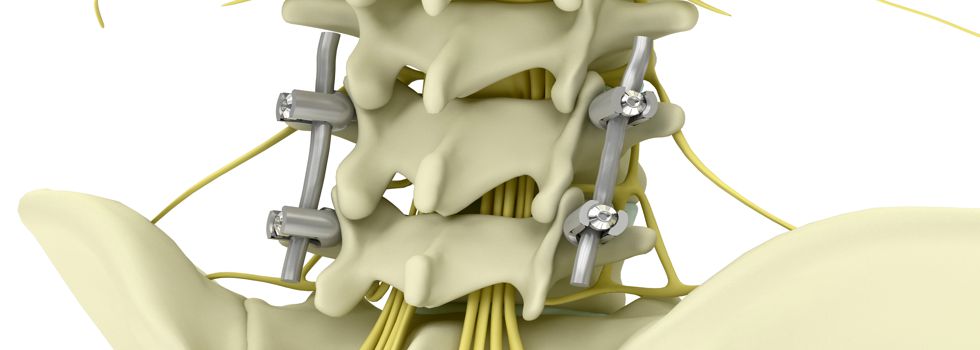Biomechanical Engineering
STUDY PROGRAMME
Biomechanical Engineering
Degree Conferred
Master of Science (M.Sc.)
Duration
4 Semesters
Enrollment
Wintersemester
Admission restriction
Restricted admission
Entry requirements
adequate bachelor degree with at least 180 CP and a minimum average grade of 2.5 (as averaged result of all provided examination performances)
Proof of professional qualification by providing at least:
10 CP in mathematics,
10 CP in natural science,
15 CP in engineering science (mechanical engineering),
5 CP in materials science.
English language skills on the C1 level according to the Common European Framework of Reference for Languages need to be attested. One of the following certificates has to be submitted for application:
TOEFL-Test: C1 (95-120 iBT) (we also accept TOEFL iBT® Special Home Edition)
IELTS: C1 (7.0) (we also accept IELTS Indicator)
CAE (Certificate of Advanced English): C1 Advanced
PTE Academic: C1 (76-84)
An assessment of equivalence of a different certificate can be requested at the examination committee of the Faculty of Mechanical Engineering as well.
A provisional admission on conditions can be made to a maximum extent of 15 CP.
Please note that proof of a measles vaccination is another admission requirement.
Statutes for the implementation of the university's internal selection procedure in the Master's program „Biomechanical Engineering“
Application deadline
Applicants with German Bachelor degree
an der OVGU
15 July
Applicants with International Bachelor degree
über uni-assist
15 June
Language
English
Study
- Exoprosthetics
- Endoprosthetics
The specialisation track Exoprosthetics focusses on medical assistance systems especially on supporting systems and products that work outside the human body. This group of products includes orthopaedic devices that replace body parts as well as mechanic devices that support, strengthen or facilitate movements of the carrier (orthosis). Furthermore, the replacement of human extremities including a complete or partial restoration of the natural functionalities are within the scope of exoprosthetics. These include e.g. artificial hands with almost completely re-established mechanical functionality or transtibial prostheses that are used in competitive sports.
The specialisation track Endoprosthetics focusses on various medical devices and products that permanently remain within the human body and completely or partially assume the functions of the replaced body part. This especially includes knee, shoulder and hip joint endoprostheses respectively.
Objectives
With respect to the demographic evolution and new rising challenges such as autonomy and mobility in senior life or aspects of regenerative medicine, graduates are offered wide occupational fields of recent and popular jobs with great potential.
The master degree programme aims at generating professional and methodical competences that allow comprehensive analysis of biomedical-technical relationships by using basic scientific knowledge. Concerning the aspect of lifelong learning, graduates will be able to steadily gain new and complex knowledge.
Combining specific knowledge in mechanical engineering, medicine, biology and science of sports and motricity helps to realize an interdisciplinary approach and allows transferring basics and principles of engineering into biological and biomedical systems. Thus, the design and development of biomedical products that work on mechanical principles can be supported comprehensively and adapted on recent challenges. The curricular course offering includes specific as well as interdisciplinary modules in the fields of materials science, mechanical engineering and construction, mechanics, human medicine and biology and medical device regulation.
Students are offered two different specialisation tracks within the course programme – endoprosthetics and exoprosthetics. All complex requirements with respect to the development, design, calculation, adaption, installation and purposive improvements of sustainable medical devices will be addressed with four dedicated modules for each specialisation track to provide academic education and professional qualification within the chosen specialisation.
Career Perspectives
Specialisation track Exoprosthetics:
Graduates are enabled to professionally work in various industrial sectors including but not limited to medical engineering and engineering science. Job definitions may include the development, production, distribution and certification of medical devices.
Possible fields of application cover complex and comprehensive areas: research, predevelopment, development, precommissioning inspection, calculation, construction, launching as well as dimensioning, evaluation, servicing and maintenance of medical assistance systems. Besides industrial sectors, capabilities can be found at service providers (TÜV and further testing institutes), public authorities, public research institutions (Max-Planck and Fraunhofer institutes) and universities.
Specialisation track Endoprosthetics:
Graduates are enabled to professionally work in various industrial sectors including but not limited to medical engineering and engineering science. Job definitions may include the development, production and optimisation of medical implants.
Possible fields of application cover complex and comprehensive areas: research, predevelopment, development, precommissioning inspection, calculation, construction, launching as well as dimensioning, evaluation, servicing and maintenance of medical devices for an application within the human body. Besides industrial sectors, capabilities can be found at service providers (TÜV and further governmental and independent testing institutes), public certification and licensing authorities, public research institutions (Max-Planck and Fraunhofer institutes) and universities. Expert activities in a self-employed or regular employment relationship can also be part of the professional perspectives.
Competencies and Interests Required
Well-developed natural scientific and technical knowledge; interests for mechanics, medicine and informatics; self-organized, structured reasoning and problem solving; enthusiasm for working in interdisciplinary teams and for assuming responsibility and leading positions
More information
The academic education including a masters degree (M.Sc.) of the Otto-von-Guericke-University provides an adequate qualification for further postgraduate education within engineering sciences and adjacent areas, e.g. doctoral study programme.



